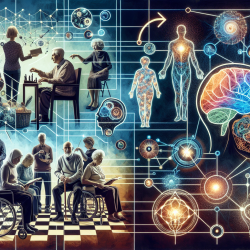Online therapy services, such as those provided by TinyEYE, are becoming increasingly vital for schools, especially in the realm of special education. As we continue to develop our skills and services, it is essential to draw insights from diverse fields, including ocean governance. The research article "The future of ocean governance" provides valuable lessons that can be applied to enhance online therapy practices.
Key Insights from Ocean Governance Research
The research identifies three major risks to ocean governance that arise from governance-related issues:
- Overexploitation of Marine Resources: This is akin to the overuse of limited educational resources, leading to burnout among therapists and inadequate services for students.
- Inequitable Distribution of Access and Benefits: Similar to disparities in access to quality therapy services among different schools and communities.
- Inadequate Adaptation to Changing Conditions: Reflects the need for online therapy services to adapt to the evolving educational landscape and technological advancements.
The study outlines five drivers that influence the evolution of ocean governance, which can be translated into the context of online therapy:
- Formal Rules and Institutions: Establishing clear guidelines and policies for online therapy to ensure consistency and compliance.
- Evidence and Knowledge-Based Decision-Making: Utilizing data and research to inform therapy practices and interventions.
- Legitimacy of Decision-Making Institutions: Building trust in online therapy platforms through transparency and accountability.
- Stakeholder Engagement and Participation: Involving all relevant parties, including parents, teachers, and students, in the therapy process.
- Empowering Communities: Strengthening the capacity of schools and communities to support online therapy initiatives.
Applying Ocean Governance Strategies to Online Therapy
- Implementing Comprehensive Management Plans: Just as the research advocates for integrated management plans for ocean resources, online therapy services should develop comprehensive plans that address the specific needs of each school. This includes tailored interventions, regular assessments, and continuous improvement based on feedback.
- Enhancing Decision-Making Processes: Decision-making in online therapy should be evidence-based, leveraging data from assessments and outcomes to refine therapy approaches. This aligns with the research's emphasis on knowledge-based decision-making in ocean governance.
- Fostering Stakeholder Engagement: Engaging all stakeholders in the therapy process is crucial. Regular communication with parents, teachers, and students can ensure that therapy goals are aligned with educational objectives and that any concerns are promptly addressed.
- Building Community Capacity: Empowering schools and communities to support online therapy can lead to more sustainable outcomes. Providing training for teachers and parents on how to support students' therapy goals can enhance the overall effectiveness of online therapy services.
- Adapting to Technological and Educational Changes: The research highlights the importance of adapting to changing ocean conditions. Similarly, online therapy services must stay abreast of technological advancements and evolving educational needs to remain effective and relevant.
Encouraging Further Research
To continue improving online therapy practices, it is essential to stay informed about the latest research and developments. Practitioners are encouraged to explore the original research paper, "The future of ocean governance," to gain deeper insights and apply these findings to their work.
To read the original research paper, please follow this link: The future of ocean governance.










